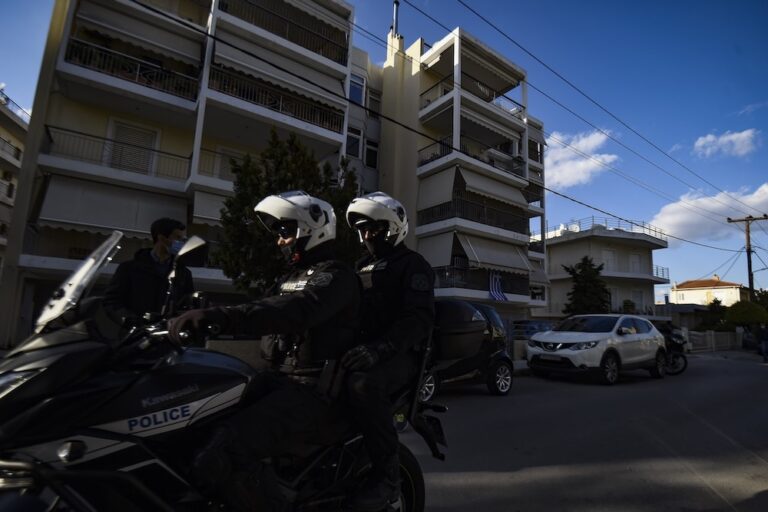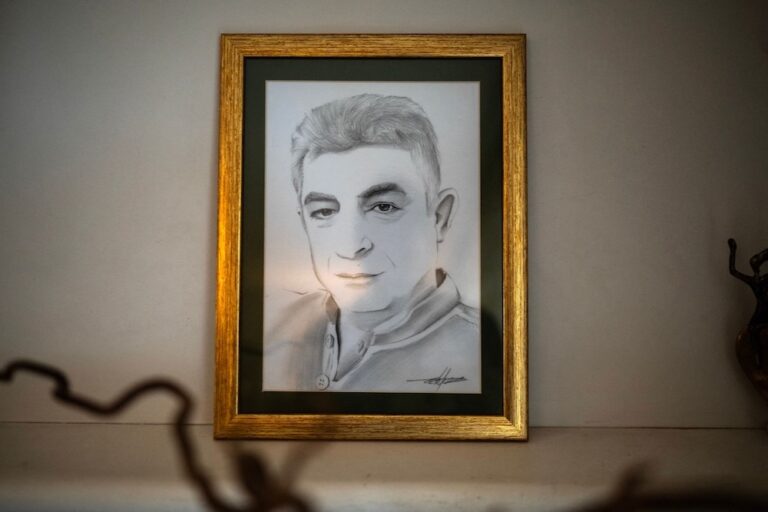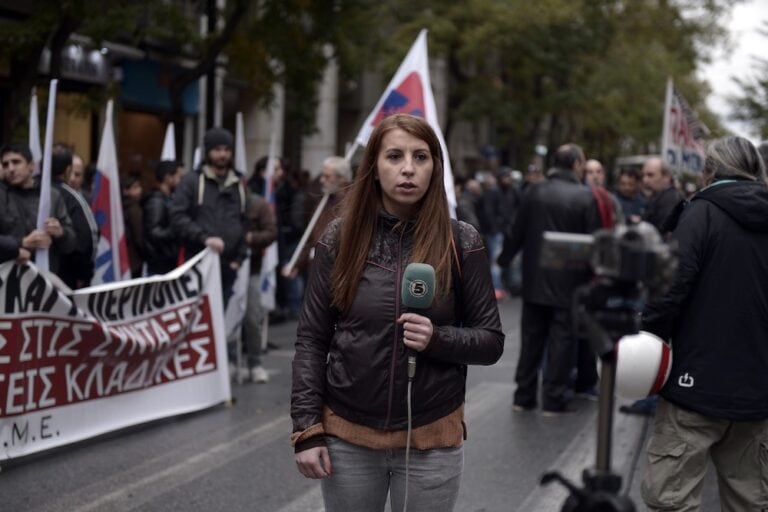(GHM/IFEX) – On 15 July 2000, at around 1:00 p.m. (local time), three journalists were temporarily arrested by four Greek police officers, on the road between Xanthi and Echinos (in Greek Thrace). The arrested included reporters Beyza Guducu and Didem Ozbahceci, and cameraman Alihan Sonmez, from TGRT-TV. They were accompanied by Ayca Guducu, Guducu’s sister, […]
(GHM/IFEX) – On 15 July 2000, at around 1:00 p.m. (local time), three journalists were temporarily arrested by four Greek police officers, on the road between Xanthi and Echinos (in Greek Thrace). The arrested included reporters Beyza Guducu and Didem Ozbahceci, and cameraman Alihan Sonmez, from TGRT-TV. They were accompanied by Ayca Guducu, Guducu’s sister, and a Greek driver of their rented car.
The journalists had come to Greece to prepare a documentary on Greek people who had moved to the Echinos region in 1923, following the population exchange between Greece and Turkey, and on the Turkish minority living in the area. They had secured a written licence from the Greek Ministry of Mass Media (in both English and Greek) to work and take photographs.
On their way to Echinos, two plainclothes policemen followed them in an unmarked car. When they reached the eighth kilometre of the road, they were stopped by another official police jeep with two officers who appeared to be waiting for them. They were told that they were not allowed to proceed any further, as they did not have the proper license for entering the restricted zone. The journalists showed the police officers their documents, which were written in both English and Greek, but the officers told them that this was not enough, and they had to wait at that point of the road.
They were then advised over the telephone by legal defenders Mehmet Dukkanci and Aysel Zeybek of the GHM’s Thrace Office to return to police headquarters in Xanthi, and ask for an explanation of the incident. However, the policemen refused to let them go, and illegally held them in custody for 45 minutes. At 1:45 p.m., more policemen arrived, increasing the number of police cars to five (inlcuding three unmarked), and the total number of officers to ten (including six plainclothes officers).
Policemen then checked and confiscated the passports of those involved in an abrupt manner. At 2:00 p.m., the journalists and the people travelling with them were forced to drive to the Xanthi police station with a police escort in front of their car, and two unmarked cars behind them.
The journalists’ team leader, Guducu, told GHM what happened at the Xanthi police headquarters: “When we reached the headquarters, only I was taken into the building. The others remained in police custody in the rented car. I left all our equipment, microphones, mobile phones, etc., and was taken from one office to another, from one floor to another, for no apparent reason. Finally, in one office, four officers questioned me: ‘Why you are here? What are your purposes?’ I told them the story from the beginning, and showed them our permission from the Ministry of the Press. They told me that this was not enough, that the region is a restricted zone, and to be able to go over there, I had to apply for a different permit. I told them that I am a journalist and that I had visited Kosovo in war time, where I never faced such police control. The police then argued that no citizen can pass the border between Turkey and Syria without a passport and other required documentation. I replied that I was not intending to enter Bulgaria, or even come close to the border. I was merely intending to speak with and interview the local people. Then I added ‘I am a journalist. I have to go and work!’ to which one officer replied, ‘I am a police officer. And you cannot go!” They added that to be able to go over there, I had to apply for permission from the GES (Army Chief of Staff) in Athens. And that this process takes at least three days.”
Around 2:45 p.m., the journalists were released from custody, after being illegally held for one hour and 45 minutes. The journalists remained under surveillance by plainclothes officers throughout the rest of their stay in Xanthi – while they packed, had lunch, and left for Turkey since their project had been aborted. They were followed all the way to the Greek-Turkish border.
Recommended Action
Send appeals to authorities:
- denouncing these actions as violations of freedom of expression and freedom of movement
- condemning the illegal harassment, arrest and cancellation of the project of the three journalists, who were properly accredited by the Greek authorities
- calling for the abolishment of “restricted zones” within a democratic state, which are nowhere near any border zone, and where non-Greek citizens need military permits to enter
- condemning the fact that many foreign journalists are being followed throughout their presence in the Turkish minority area
Appeals To
George Papandreou
Foreign Minister
Athens, Greece
Fax: +30 1 36 81 433
Dimitris Reppas
Minister of Press and Information
Athens, Greece
Fax: +30 1 36 06 969
Professor Mihalis Stathopoulos
Minister of Justice
Athens, Greece
Fax : +30 1 77 55 835
Please copy appeals to the source if possible.


